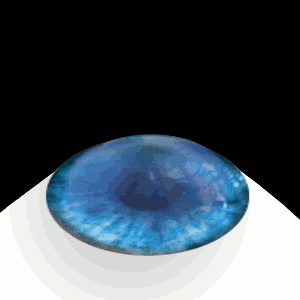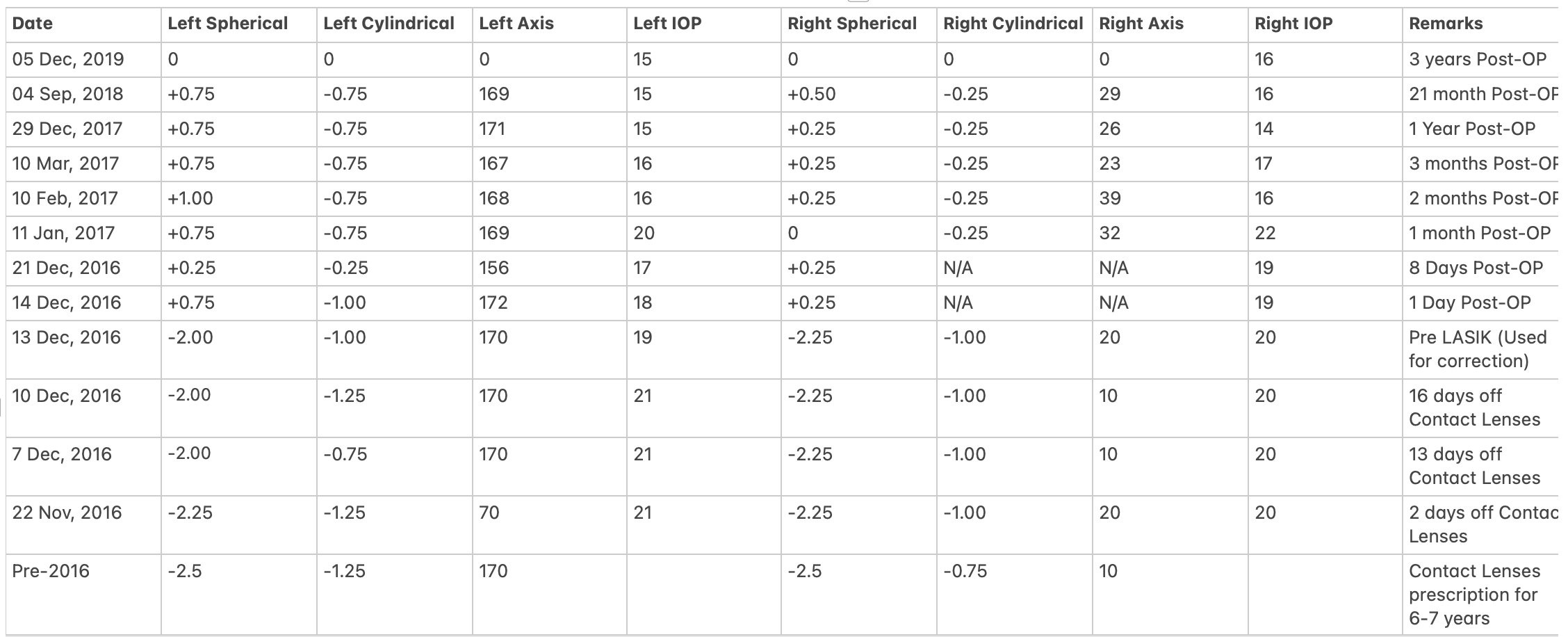I had thought about getting LASIK many times throughout my life, but never followed through. By 2016, when I couldn’t wear my contact lenses anymore, I decided to finally take the plunge.
I went to my favourite hospital and consulted an Ophthalmologist. She explained to me the process in detail. I had a Pentacam test which showed that my corneal thickness was in the risky zone. However, the Ophthalmology director gave the go ahead for waveform guided LASIK. I also needed a retina test which involved dilating my pupils and shining a very bright light into my eyes. The most difficult part was not wearing my contact lenses for 3 weeks. This was so that my eyes would go back to their original shape and provide the most accurate correction readings for LASIK.
During this waiting time I also contracted Blepharitis which delayed the surgery further. However, on 13 Dec 2016, the day finally came to get operated on.
I went to the hospital excited like mad, armed with money donated by my mother. They took one final set of measurements and started putting anaesthesia drops in my eyes every few minutes. Soon my eyes were numb and they took me to the procedure room.
The process itself was uncomfortable but not painful. They use speculums to keep your eyes propped open and ask you to look straight. Then they use a suction ring to keep your eye straight. This step feels like enormous pressure on the eye but is not painful. Your vision goes all wonky. Then a Femtosecond laser creates a flap on your cornea. The eyesight at this point becomes blurry. When they lift the flap, you can see only a bright light.
At this stage, another excimer laser re-models and corrects your cornea as per the requirements. You can smell something burning (your cornea). Then the surgeon restores the flap, flattens it and wets the eye. The entire process is repeated for the other eye.

The entire process only takes 15/20 minutes and after that you can get up straight away. Your vision is still blurry and you cannot look at lights. My wife helped me go home where I immediately went into a dark room. Even a small sliver of light from the corner of the curtains was excruciatingly painful. I spent the entire day moping in darkness, not being able to do much except listen to music.
The next morning was beautiful. When I opened my eyes, I could immediately notice that I could see clearly without any aids. I took a cab to the doctor and had my first post-op check up. She inspected the flap, gave me medicines and sent me home. At this point, my vision was not perfect, but it kept on improving over the next few weeks and months. I would still see Halos and blurriness around light sources at night for many months.

Reading and using the computer for the first few weeks put a lot of strain on my eyes but temporary reading glasses helped with that. I developed a habit to check my vision regularly by closing one eye at a time while driving and trying to read the license number of a car ahead of me.
Slowly but surely, my vision improved and thankfully, now I have 6/6 vision in both eyes without any visual aids. Now waiting for Presbyopia to strike me in the next few years and add a fourth installment to this series.
Discover more from An Insight into my Hindside
Subscribe to get the latest posts sent to your email.
Are presbyopia and hypermetropia different conditions?
Hypermetropia is relatively rare. Your eyes can still focus but not focus on nearby object. In presbyopia, the eyes lose the ability to focus at all because the lens becomes rigid.
If you currently have Myopia, you will still be able to see nearby objects without issues and never need reading glasses. Since I corrected my Myopia I will need reading glasses